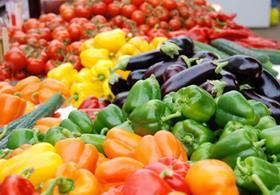
The costs of exporting Dutch agricultural and food products to the UK could rise by more than 30 per cent in the event of a no-deal Brexit, experts in the Netherlands have claimed.
A new analysis by Dutch management consultancy Berenschot, which researched the costs and risks of a hard Brexit, said steps suppliers could take to mitigate the risks include transferring production to the UK.
Berenschot's study, commissioned by development company Oost NL and the province of Gelderland, outlines the effect on costs and risks for fresh products, semi-finished products and fully manufactured products using six different scenarios. It comes after new figures from the country’s Chamber of Commerce suggested that only one in three Dutch companies is well prepared for Brexit.
The research focuses on the agri and food sector, which is particularly impacted by Brexit, with the report indicating that current agreements and modus operandi will come under considerable pressure. It also points out that for British companies that are more dependent on the EU for raw materials than vice versa, the effects of a no-deal Brexit will be greater than those for their Dutch counterparts.
One of the scenarios in the report involved a Dutch potato chip manufacturer, which will face a 14 per cent increase in WTO rates. If no action is taken to counteract the effects of a no-deal Brexit, it could result in a margin decrease from 4.3 to 2.3 per cent. Depending on transport costs and value of product, the producer might be better off by seasoning and packing in the UK, according to the analysis.
Another example looked at a meat supplier, which sells packets of sliced ham at fixed rates per kilo and is faced with a hefty cost price increase of 32 per cent. With a simultaneous rise in the sales price on British shelves, that could lead to considerably lower demand. 'In this case, the effect of decreasing demand could even be greater than that of the cost price increase,' said Edwin Lambregts, sector leader for agri and food. 'In this case the producer should instead add value and/or secure alternative markets.'
Companies have also advised not to not bear the burden alone. 'Together with all additional new registrations, licenses, regulations, labelling requirements and supply chain risks, exporters ideally sell Ex Works and importers buy Delivery Duty Paid,' said Berenscht’s international trade expert Marita de Beer. 'But in reality, this is not so simple, particularly if the UK is a strategic market. Then it is important for all parties to protect themselves against Brexit risks by reviewing contractual terms, renegotiating where needed and covering for possible late deliveries as a result of transport delays.'






No comments yet